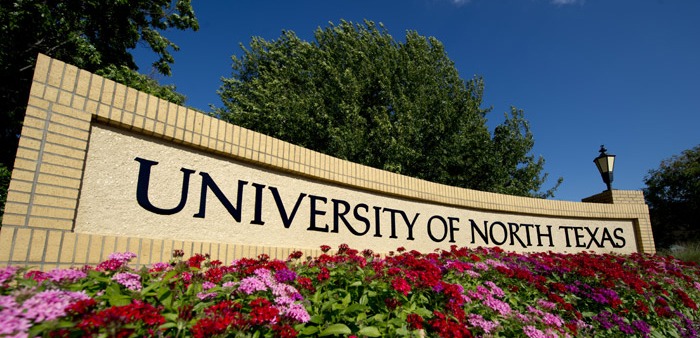Unclaimed Bodies Scandal: Dallas County & UNT's Shocking Secret Revealed!
Unraveling the disturbing unclaimed body scandal that has emerged involving the University of North Texas (UNT) and the Dallas County.
9/29/20243 min read


Unclaimed Bodies Scandal: Dallas County & UNT's Shocking Secret Revealed!
Introduction
In recent news, a disturbing scandal has emerged involving the University of North Texas (UNT) and Dallas County. An investigative report has uncovered a shocking truth about how unclaimed bodies were handled in Texas. This case exposes ethical dilemmas and questionable practices surrounding the treatment of homeless and unclaimed bodies in the region, sparking public outrage.
Let’s break down the scandal and explore how UNT’s Health Science Center was involved in a scheme that profited from unclaimed corpses.
The Scandal Unveiled
The scandal first came to light through a 10-month investigation by NBC News. The University of North Texas Health Science Center in Denton, Texas, was found to have entered an agreement with Dallas and Tarrant counties in 2019. The agreement allowed the university to receive over 2,350 unclaimed bodies from the county morgues for their body donation program. These bodies, many of which were homeless individuals, were not given proper identification procedures, and next of kin were not contacted.
This arrangement was meant to alleviate the financial burden of cremating and disposing of these unclaimed bodies. However, the ethical lines were quickly blurred as only 830 of the bodies were used for medical dissection at the university. The remaining 1,520 bodies were sold to third-party organizations for profit, amassing over $2.5 million in revenue.
The Unethical Practices
The investigation raised several concerns:
Lack of Consent: None of the 2,350 individuals had consented to their bodies being used for medical purposes. Many had family members who could have claimed their remains.
Mismanagement of Bodies: The deceased were often left unidentified, even though many could have been traced through fingerprints or basic identification methods.
Profiteering from the Dead: In an even darker twist, bodies were sold for profit. For example, parts of Victor Carl Honey, a homeless veteran, were sold to companies for medical training and educational purposes, without any knowledge or consent from his family.
The bodies were leased to companies like Johnson & Johnson, Boston Scientific, and even the U.S. Army, all of which later claimed they were unaware these were unclaimed bodies.
What Happened to the Bodies?
One of the most heartbreaking aspects of this scandal is the story of how these bodies were used after being sold. A Swedish medical device company, for example, paid $341 for a homeless man’s severed leg to train clinicians. Honey’s torso was sent to Pittsburgh for medical training, while his skull bones were used by the U.S. Army for educational purposes.
Many other high-profile companies were involved, all of whom have since denied any wrongdoing, claiming ignorance of the origins of these body parts.
How Could This Happen?
The scandal has raised critical questions about the oversight and ethical practices of the university and county officials:
Failure to Identify: Evidence suggests that some of these bodies never even passed through a coroner’s office. Instead, they were collected from hospital beds, nursing homes, and homeless encampments.
Negligence by County Officials: There were obvious failures in finding next of kin, even when missing persons reports were filed by family members. In many cases, basic identification measures like fingerprinting were not done.
What’s Happening Now?
After NBC’s findings were made public, the University of North Texas Health Science Center suspended its body donation program and fired the officials involved. The counties that participated in the agreement are now re-evaluating their practices, and Dallas County has postponed any decisions to extend its contract with the university.
Tarrant County officials have also voiced concerns about the morality and ethics of the practice and are exploring legal options to terminate the program.
Ethical Lessons Learned
The unclaimed bodies scandal in Dallas and UNT raises significant ethical concerns. While the counties involved sought a logical solution to an overwhelming problem, they failed to consider the humanity and dignity of the individuals involved. This scandal highlights the ongoing struggle to balance the needs of large cities with the rights and respect owed to all individuals, particularly the homeless and vulnerable.
Watch Our Full Video
Watch our full video on the Unclaimed Bodies Scandal in Dallas and UNT
Conclusion
This scandal is yet another example of how the poor and marginalized can be exploited for profit. While legal action and reforms may follow, the damage done to the families and individuals involved cannot be undone. This incident serves as a grim reminder of how easily unethical practices can arise when profit is prioritized over people.
Be sure to stay informed on developments as this story unfolds, and remember to subscribe for more content on topics surrounding death, ethics, and societal issues.
Are you interested in bringing death education to your school, organisation or learning more on a certain subject? Our consultations are tailored to fit your needs. Book a consultation now to learn how we can help.

